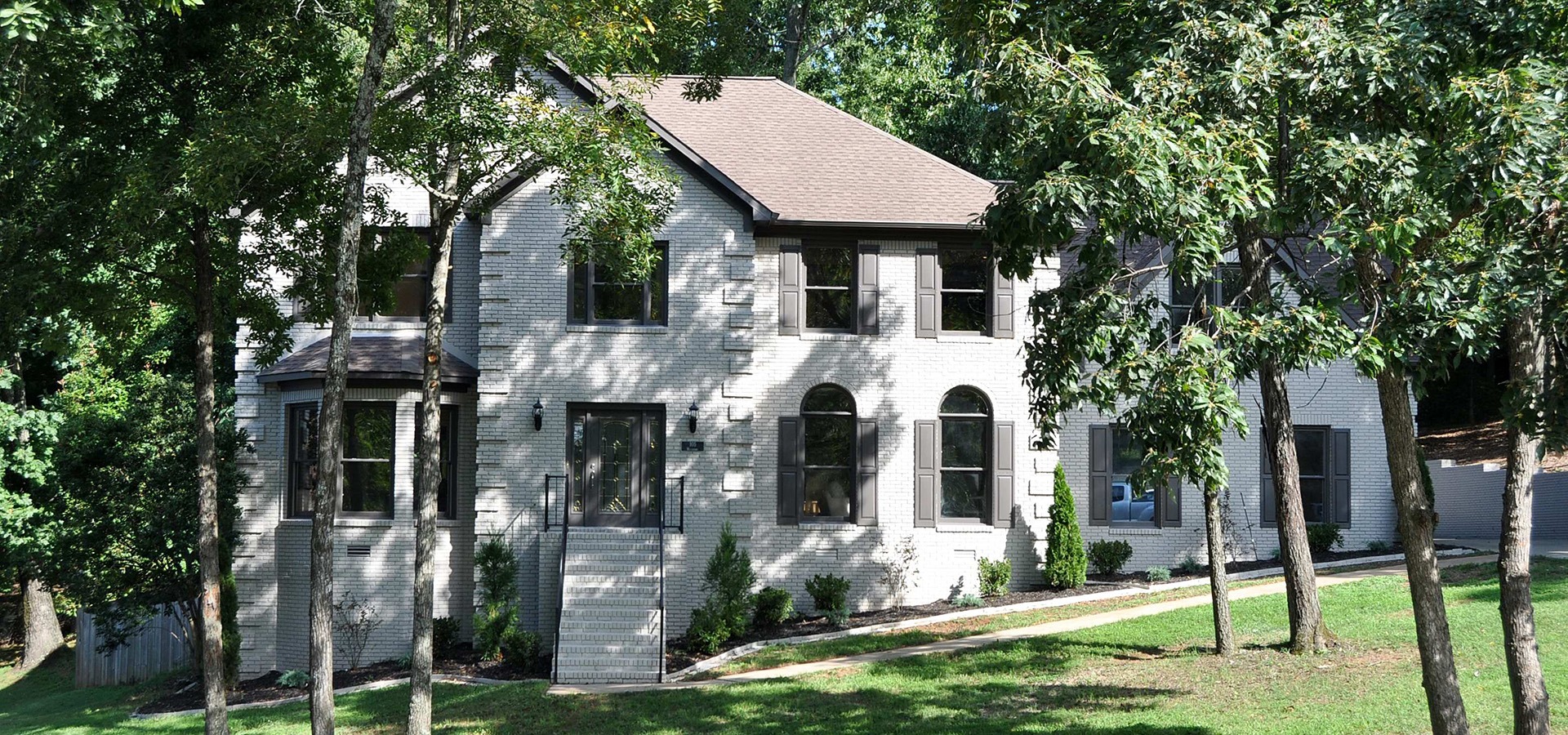Random Real Estate Tips You Should Consider as a Buyer or Seller
Let’s face it, people rarely buy their “forever home” – especially in their early 20s and 30s. Many people buy their “temporary/starter/till I find something better” home. I know I did – and I’ve learned some lessons along the way.
I signed a contract to have my first home built as soon as I graduated from college and before I ever thought about becoming a real estate agent – to me, it was a good decision to build up equity in my own home rather than paying someone else’s mortgage by renting. What I didn’t think about at the time was that this was one of those “till I find something better” homes. It was a 3 bedroom, 2 bath, 1962 sf house that I paid too much for and then still had to put more into to be competitive when I sold. I purchased this house in 2010 for $178,250, I sold it in 2016 for $191,000 after putting about $13,000 into it just so it would sell quickly and for the price I was asking. Some people call that almost “breaking even” – but let me tell you how it’s NOT.
This is thing #1 you’ll want to think about as a Buyer who will eventually be a Seller. If you list your house with a real estate agent – I’m not saying don’t (please do, and use me!), because you get SO MUCH MORE exposure when you do (which is why the house referenced above sold in 3 days and had multiple offers) you pay something called commission. Commission is as follows: 3% of the purchase price of your home to your agent (the listing agent) and 3% of the purchase price of your home to the buyer’s agent (the selling agent). Then there’s also this thing called closing costs. Not only will you have to pay your typical seller-paid closing costs, but any buyer who might make an offer on your house will almost certainly ask for you to pay another 3% of the purchase price of your home towards their prepaids, escrows & closing costs.
So, let’s do the math, we can use me as an example. If you sell your house for $191,000 and you pay 6% total in commission and you agree to pay 3% towards the buyers closing costs, you net $173,810. And if you purchased said house for $178,250 and put $13,000 worth of upgrades into it making your investment $191,250… I call that a $17,440 LOSS. Harsh, am I right?
If you KNOW you’re buying a starter home – something you’re only going to be in for 3-5 years (or barely 2 years, in my case) – please, don’t be like me! Do not build or buy brand new unless you plan on being there for the long-term! You will almost certainly never get your money back. Look for houses that have great layouts but need the ceilings scraped, a coat of paint and new appliances!
I know what you’re thinking – “you buy houses and fix them up and sell them for top dollar, why are you writing this? Don’t you want us to keep buying your houses?” Well, OF COURSE. But, I really like to think that the houses I sell are more than just starter homes. It makes me so happy when I see people that have bought our flips make references to them as their “dream home” – it literally warms my heart. I want to make those houses so perfect that the new owners won’t be looking for a “something better” home to come along.
I am pretty picky about my flip houses – which is why you’ll only see 1 or 2 per year from BDD. There are criteria that these houses need to meet to be sellable. I have honed the criteria with each flip house over the years. Which leads me to the #2 you’ll want to think about as a Buyer who will eventually be a Seller: if you’re buying a 2-story house, make sure there is a bedroom downstairs. This is so crucial. Having a bedroom on the bottom floor may not matter to you as a 20 or 30-something year old buyer; but when you go to sell it, there’s a very good chance you may be waiting and waiting and waiting for a buyer to come along.
One of our flips a couple years ago was a 2-story with all of the bedrooms upstairs. We literally had 5-10 showings per week for 4 months and almost every request for feedback ended up with an agent telling us that their clients really needed a bedroom downstairs. That was such a frustrating time because it was the flip that took the longest to sell (because of the bedroom issue) and it was also our biggest with the most money invested.
If you’re living in the house and waiting for it to sell, it’s not as big of an issue – but if you have a new house, that means you have a second mortgage, which IS an issue! Which leads me to my #3 – which is for the Buyer who is also the Seller at the same time – don’t jump the gun when buying your next house! Realistically, it’s hard to predict how quickly a house will sell. You may have a good house that’s priced right (maybe even less than what you bought it for), but the market just isn’t working in your favor. Better to be safe, than have two mortgages!
If you DO find the house you can’t live without before your house sells, write into the contract that the purchase would be contingent upon your house selling. Most Sellers don’t like contingencies, but if they haven’t gotten a better offer, they’d be inclined to agree if you are willing to sign a First Right of Refusal. A FROR says that although you have a contract on the house, the Seller still has the right to market the property as active and can entertain other offers. If the Seller receives another offer, they are required to notify you as the Purchaser and you have a period of time (typically 24 hours) to remove your contingency in writing and agree to go ahead and purchase the house.
If this scenario happens and your house has not sold, you have two options: one is to wait it out and see if your house sells. The other option is to list your house for rent. Realistically if you go with option one and wait it out, you really want to have a set amount of time in your head that you’re willing (and capable, money-wise) to wait. Typically, when you close on a new house, you don’t have a payment right away – so you’ll probably be willing to keep your house on the market for the first month you’re in your new home… Then you have to ask yourself, how many months am I comfortable with having 2 mortgages?
Did you know that you can have your house listed both for sale and for lease at the same time? Although this route may not be ideal, it may be the smartest route (especially if you’re dealing with #1 from the beginning of this post when you’ve paid too much for your house). When you become a landlord, someone else starts paying down your mortgage balance and can help you build equity. If you rent it for a few years, you may stand to break even or make some money by the time you decide to put it back on the market for sale.
This is what I did. If you’ll notice, I only lived in my first home for a little less than 2 years, but I owned it for 6 years. I had renters in there paying my mortgage, and I was actually able to collect an additional $350/month that I then put towards my primary residence mortgage.
This is a scenario that can work in your favor, but there are things you have to think about… Which leads me to #4 which is for the Buyer and Seller turned Landlord: when you buy a new home and move into it, you’re going to change your homestead exemption to that new primary residence, which means that your property taxes on your old home (now your rental home) will double. Take this into consideration when figuring out what to charge for rent. If your mortgage payment was putting $150/month into your escrow account while you lived in the home, once your homestead exemption is gone, your mortgage payment will increase $150/month. So if you had been paying $850/month for your house while you lived there, your payment will go up to $1,000/month now that you don’t live there. At the same time, your homeowners insurance will decrease when you change your policy, but it won’t make as much of a difference as your property taxes. So, make sure that you’re charging enough to cover your entire mortgage after those changes, and then if you’re in a good area with a good house, try to make a little bit per month that can go towards your own mortgage – I mean, there should be some perks to being a landlord, right?
You may say, “but I can’t purchase a new home and keep my old one as a rental because I’ll exceed my VA financing cap” – here comes #5 for the Buyer/Landlord who thinks outside the box: most of the time, you have options. The current VA loan limit is $417,000. So if your first home was purchased with VA financing for $175K and the house you’re wanting to purchase with VA financing is listed at $275K, you can’t buy it with VA financing, right?
Wrong!
Yes, it is true that you can’t exceed that cap – BUT – you have the option of refinancing your original loan to a conventional loan, you may even get a better rate out of it depending on what the market was like when you bought that home. Then, you can use your preferred 100% VA financing to purchase your next home. While you will save money by not having that down payment, just remember that you will have closing costs for 2 loans! Closing costs for your refinance, and closing costs for your purchase – but also remember that you can ask for the Seller to pay a portion of your closing costs for your purchase J.
So, let’s recap:
- Don’t overpay for your home if you’re only going to be there for 3-5 years. You can’t sell it for what you paid for it and make money. 99.9% of buyers will become sellers at some point and will need to think about their cash position as a seller down the line.
- A 2-story home with a bedroom downstairs will always sell faster than a 2-story home with all the bedrooms upstairs. As a Seller, you want your home to appeal to as many Buyers as possible.
- Don’t jump into the purchase of your next home without a solid and well-thought-out plan in place for your current home!
- If your plan for your current home is to rent it, take the contents of your escrow account into consideration before setting the rental price – make sure your mortgage is completely covered!
- Think outside of the box when it comes to financing to get what you really want! A lender will surely try to make it work if you have both a refinance and a purchase on the table!
These are all things that I’ve experienced or personally seen in my time as a real estate agent, besides the purchase of my first home – if only I knew then what I know now! These are also things that some buyers and sellers just don’t think about until they’re experiencing them first-hand – and let’s be real, don’t we all want to learn from someone else’s mistakes and/or successes? When it comes to such a big purchase/commitment, I would think so!
Have any of you experienced similar situations? Do you have any take-aways you would like to add?
Chelsea McKinney





